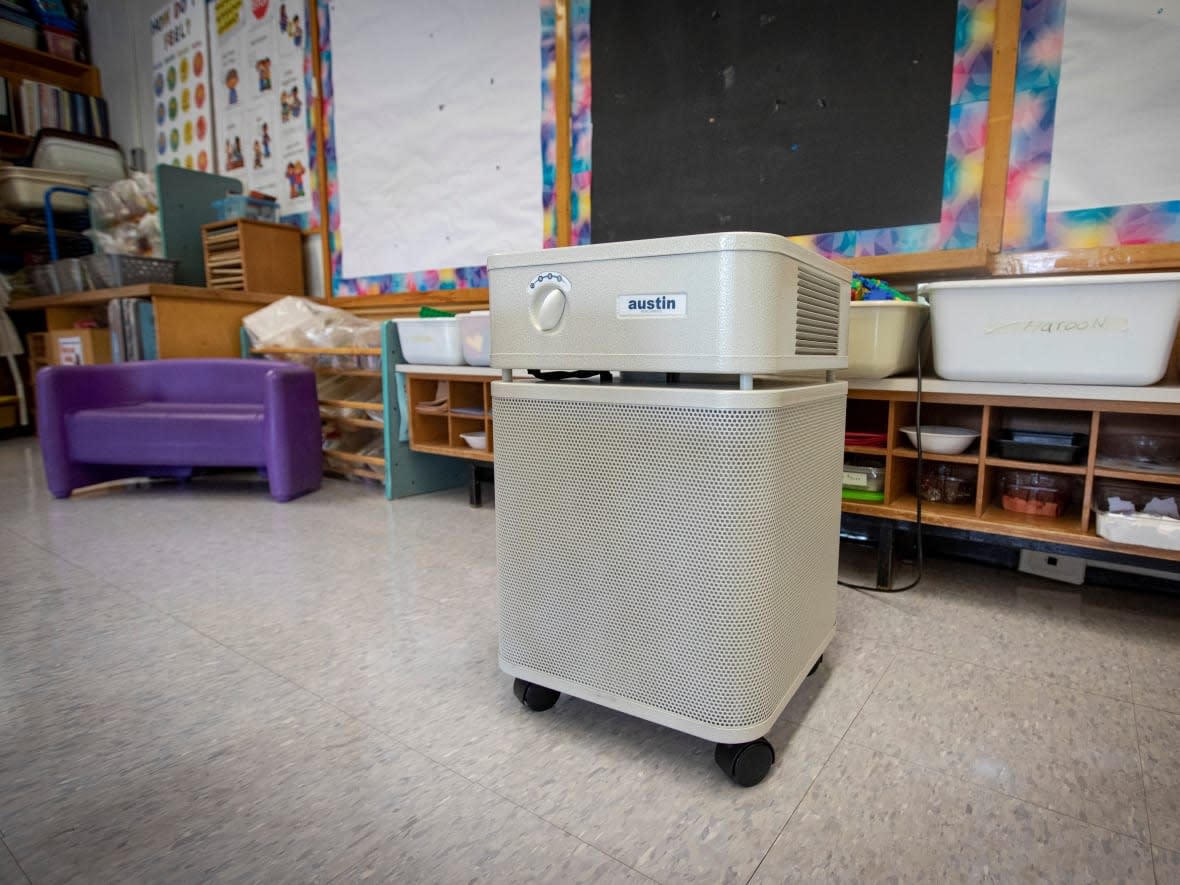HEPA filters latest weapon for schools in fight against COVID-19

Some P.E.I. students will see something new in their classrooms when they return to in-person learning on Monday, Jan. 31.
The province has purchased 175 HEPA filters for schools, which were delivered over the past two weeks. The portable air-filtration systems will go in all classrooms that don't currently have mechanical ventilation systems.
Jeffrey Siegel, a professor at the University of Toronto who specializes in indoor air quality, said HEPA filters can help stop the spread of COVID-19 in the air.
"Fundamentally, a HEPA filter is two things: a fan and a filter. And the fan moves air and, importantly, it moves air through a filter media," he said, "and what that filter media do, you can kind of think of it like straining the air and it removes particles from the air, including respiratory particles that might contain the COVID-19 virus."

The Official Opposition, however, is raising concerns about whether the filters will do enough to help protect students.
"Not that they won't do anything, they will do a little something, it's a little like taking a portable electric heater and putting it in an auditorium," said Green MLA Ole Hammarlund.
"Although effective as they are at taking small particles out of the air, such as COVID virus, they won't actually give any fresh air, so there's kind of little point in cleaning the air for virus particles and then there being no fresh air for the students."
Siegel said HEPA filters work best when they're the proper size for the room, but even an undersized one is better than none at all.
"It's providing some benefit, arguably in some cases maybe not enough or not a lot of benefit, but it is providing some benefit," he said.
Covers 2,500 square feet
A HEPA filter that's the right size should be able to filter all the air in a room multiple times per hour. The distributor said the air filters can cover 2,500 square feet. The average classroom is about 750 square feet.
Stephane Bilodeau, who lectures in the bioengineering department at McGill University, said where the filter is located in a room also makes a difference.
"The closest to the centre of the room is the best, just because it will carry and in fact grab or capture the maximum amount of particles."
The experts said HEPA filters are most effective when other public-health measures are also being followed, so students should still wear masks and physically distance.
The province said plans are in place to install mechanical ventilation systems at the 11 schools that don't currently have them. That work is expected to begin this summer.


